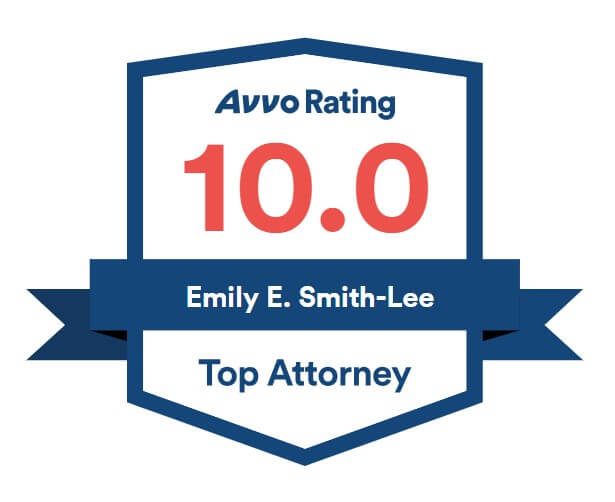What to Expect as a Plaintiff in a Civil Suit
Navigating Life as a Plaintiff in a Civil Suit: What to ExpectFor many, being a plaintiff in a civil lawsuit is a new and unfamiliar experience, far removed from what we see in movies, TV shows, or books. Here, we provide answers to frequently asked questions that plaintiffs often have when entering the world of civil litigation.
Duration of a Civil LawsuitThe timeline of a civil lawsuit can vary based on several factors. If you agree to settle early in the case, the process can be shorter. However, if the lawsuit proceeds to trial, it can take up to two years from filing to a court judgment.
Anticipated DamagesThe damages you can expect to recover depend on the nature of your case. For wrongful termination or constructive discharge claims, the primary measure of damages is typically lost wages. The court considers your back wages from termination to judgment, subtracting any replacement income and unemployment benefits (mitigation of damages).
Wage and hour cases typically involve unpaid wages, which may be multiplied based on the nature of your claim. In sexual harassment cases, damages often include compensation for emotional distress, which is less quantifiable than lost wages. In most employment law cases, successful plaintiffs also recover their costs and attorney fees. The Discovery Process"Discovery" is the phase where both parties gather relevant case information. This process may seem extensive, but it serves a vital role in resolving disputes. Common forms of discovery include:
|
We're Here to Help.OR
|
Questions About a Civil Lawsuit?
Our Solutions Roadmap is a quick and easy way to share the details of what you are facing and receive preliminary feedback from a member of our team. Use the button below to get started- it is 100% confidential and 100% free.
Cost of Litigation
The cost of litigation can vary widely, depending on your fee arrangement with your attorney. Hourly fees vary, so it's wise to discuss budgets and expectations with your lawyer. Expenses may include court filing fees and deposition transcript costs, which can range from $400 to over $1000 per deposition, depending on the length of the questioning.
If you have a contingent fee agreement, you won't pay attorney fees until you recover compensation through judgment or settlement. Usually, however, you will be responsible for out of pocket costs like filing fees and deposition transcripts as they are incurred.
If you have a contingent fee agreement, you won't pay attorney fees until you recover compensation through judgment or settlement. Usually, however, you will be responsible for out of pocket costs like filing fees and deposition transcripts as they are incurred.
Communication with Your Lawyer
You should always be able to reach your lawyer or their team when you have questions or concerns. You also have the right to expect updates on case developments or settlement offers.
It's important to understand that there may be periods of inactivity during a lawsuit, and court timelines may vary.
It's important to understand that there may be periods of inactivity during a lawsuit, and court timelines may vary.
Evaluating Settlement Offers
The vast majority of civil cases settle before going to trial, often due to evolving case dynamics and the unpredictability of trial outcomes. When evaluating a settlement offer, consider both subjective and objective factors. Subjectively, weigh the offer against what you're willing to accept. Objectively, trust your attorney's analysis of potential trial outcomes and the value of the offer based on your chances of success.
In the end, a settlement signifies compromise, where you may not get everything you want but could achieve what you need to move forward.
Navigating the complexities of a civil lawsuit can be challenging, but understanding what to expect can help you make informed decisions throughout the process.
In the end, a settlement signifies compromise, where you may not get everything you want but could achieve what you need to move forward.
Navigating the complexities of a civil lawsuit can be challenging, but understanding what to expect can help you make informed decisions throughout the process.
Meet Our Trial Attorneys

Emily Smith-Lee is the owner and founder of slnlaw. She is a 1996 graduate of Boston College Law School. She was previously a partner at the Boston office of a large international firm, where she worked for thirteen years, with a focus on complex business litigation. In 2009, she started the firm that became slnlaw. She has been recognized as Massachusetts Superlawyer each year since 2013, and in 2018 earned recognition as one of Massachusetts Lawyers Weekly's Lawyers of the Year for a precedent-setting victory at the Massachusetts Supreme Judicial Court. She has written a book on employment law: Rules of the Road, What You Need to Know About Employment Laws in Massachusetts, and helped thousands of clients with business and employment disputes. Emily has handled cases at every level of the state system, in the federal trial court, and before the First Circuit Court of Appeals.

Elijah Bresley: Eli is a 2014 graduate of Seton Hall Law school, and has worked with slnlaw since 2020. He previously worked for a boutique employment law firm outside of Boston, and then for the Labor and Employment department of a large Boston firm. He also spent a year clerking for the judges of the Superior Court in Hartford, Connecticut. Eli has successfully defended numerous employers in the MCAD, and litigated other business and employment disputes throughout the state court system and in the federal trial court.

Sharleen Tinnin: Sharleen is a 2010 graduate of Northeastern University School of Law, and has been with slnlaw since 2023. Prior to joining slnlaw, she worked with King, Tilden, McEttrick & Brink, P.C. on complex civil litigation matters. She previously worked for the United States Department of Justice, and received an "Excellence in Justice" award in 2017. Sharleen has litigated both plaintiff and defendant cases in the state court system, MCAD, and the federal trial court.
How We Can Help
If you have questions about your civil case, we can help you assess the case and understand your options going forward. You can use the button below to schedule a call back from a member of our team, or give us a call at 781-784-2322.
|
Emily Smith-Lee Rated by Super Lawyers loading ... |
Jenna Ordway
Rated by Super Lawyers loading ... |



